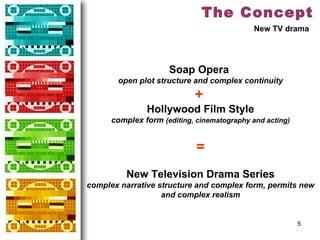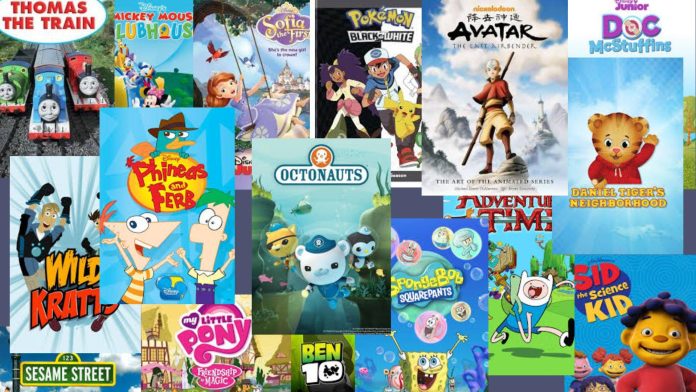In the ever-evolving landscape of television, where the flicker of the screen holds the power to captivate millions, there exists a select pantheon of shows that have transcended the conventional boundaries of storytelling. These are the trailblazers, the visionaries, the series that dared to defy narrative norms and redefine the very essence of what television could achieve. As we embark on a journey through the annals of groundbreaking TV, we will uncover the must-watch shows that have not only entertained but have also pioneered new forms of storytelling. From intricate narratives that weave time and space into a seamless tapestry to characters so richly developed they blur the line between fiction and reality, these shows have set a new standard for creativity and innovation in the medium. Prepare to delve into a world where storytelling knows no bounds, and discover the series that have forever altered the television landscape, leaving an indelible mark on both the industry and the audience.
The Dawn of Narrative Innovation in Television

The world of television has undergone a revolutionary transformation, pushing the boundaries of conventional storytelling. This era of narrative innovation is marked by TV shows that have redefined how stories are told, introducing groundbreaking techniques and formats that captivate audiences worldwide. From non-linear timelines to interactive plotlines, these shows challenge viewers to engage with content in unprecedented ways.
- Breaking the Fourth Wall: Shows like Fleabag and House of Cards have mastered the art of directly addressing the audience, creating an intimate and immersive viewing experience.
- Non-Linear Narratives: Series such as Westworld and The Witcher play with timelines, weaving intricate stories that require active participation from the viewer to piece together.
- Anthology Formats: With each season or episode presenting a standalone story, shows like Black Mirror and American Horror Story allow for fresh narratives that explore diverse themes and genres.
- Interactive Storytelling: Pioneered by projects like Black Mirror: Bandersnatch, this format empowers viewers to make choices that directly influence the storyline, merging gaming with traditional TV.
These innovative approaches not only redefine the viewer’s experience but also set new standards for creativity in television production. As audiences become more sophisticated, the demand for inventive storytelling continues to grow, heralding an exciting future for the medium.
Groundbreaking Visual Techniques and Their Impact
Television has long been a medium for artistic experimentation, and several shows have pushed the boundaries of visual storytelling, setting new standards for creativity and engagement. Innovative camera techniques and unique narrative structures have become integral to the success of these series, drawing viewers into immersive worlds and offering fresh perspectives on traditional narratives.
- Single-shot episodes have captured the immediacy and intensity of live performance, as seen in series like “True Detective,” where a continuous six-minute take added a layer of realism and tension.
- Visual effects and CGI have transcended their origins in science fiction, enabling series like “Game of Thrones” to create expansive fantasy worlds with unparalleled depth and detail.
- Through non-linear storytelling, shows like “Westworld” have challenged audiences to piece together fragmented timelines, offering a puzzle-like viewing experience that encourages active participation.
These visual techniques not only enhance the aesthetic appeal of television but also serve to deepen emotional engagement, offering viewers new ways to connect with characters and stories. As these methods continue to evolve, they promise to redefine the boundaries of television storytelling, offering endless possibilities for future creators.
Character Complexity: Redefining TVs Protagonists
Television has evolved beyond the simple binary of hero and villain, with shows now embracing a tapestry of intricate characters that defy easy categorization. This shift towards multifaceted protagonists has allowed viewers to engage with narratives that are as unpredictable as they are compelling. Walter White from “Breaking Bad” transformed the landscape with his descent from mild-mannered teacher to menacing anti-hero, challenging audiences to grapple with moral ambiguity. Similarly, Tony Soprano in “The Sopranos” redefined the gangster archetype, blending brutality with vulnerability in a way that left viewers both repelled and empathetic.
- Don Draper in “Mad Men” — A brilliant yet deeply flawed ad executive whose past haunts his present.
- Fleabag from “Fleabag” — A candid portrayal of a woman navigating grief, love, and identity with biting humor.
- Omar Little in “The Wire” — A complex Robin Hood figure who operates outside the law yet abides by his own strict code of ethics.
- Villanelle in “Killing Eve” — An enigmatic assassin whose charisma and chaos redefine femininity and power.
These characters have paved the way for storytelling that reflects the intricacies of real human experience, pushing the boundaries of what television can achieve. Through their complexities, they invite us to explore the darker, nuanced corners of the human psyche, ensuring that the evolution of TV narratives continues to captivate and challenge its audience.
Essential Viewing: Series That Transformed Storytelling
In the evolving landscape of television, certain series have shattered traditional storytelling molds, crafting narratives that challenge and captivate. These shows are not just entertainment; they are cultural milestones that have redefined the medium, offering fresh perspectives and innovative techniques. From intricate plot structures to immersive world-building, they have set new benchmarks for storytelling excellence.
- The Sopranos: This groundbreaking series blurred the lines between hero and villain, introducing complex characters with morally ambiguous narratives that changed the way audiences perceived protagonists.
- Breaking Bad: Known for its meticulous character development and relentless tension, this show transformed episodic storytelling with its intricate narrative arcs and unexpected twists.
- Black Mirror: Offering a dark reflection of modern society, this anthology series pushed the boundaries of speculative fiction, each episode a standalone exploration of technology’s impact on humanity.
These series have not only captivated audiences but have also paved the way for future creators, inspiring them to push beyond conventional storytelling and explore uncharted narrative territories.



